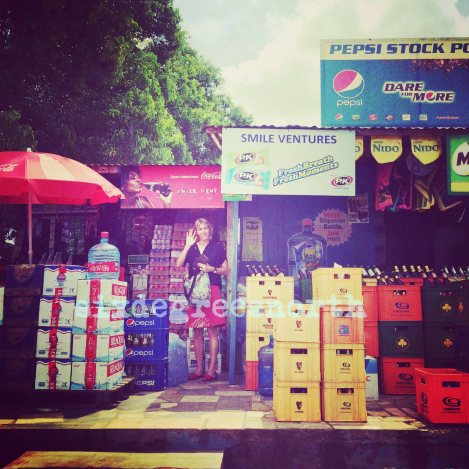I’ve been MIA, I admit it. But you see, I’ve been out reinventing myself.
Some days I’m a student, some days I’m a swimmer. Most days I’m a chauffer, short order cook and personal shopper. But everyday I’m a mother.
The last few weeks have been a flurry of end of year activities. Commencement ceremonies, swim team parties, class parties, birthday parties, end of year parties, farewell parties.
Are we sensing the pattern here?
If I get asked one more time to “Just bring something small….”
I’m not a complete Scrooge, and of course it’s lovely to celebrate the milestone of another year end. (Although my southern hemisphere brain is still seriously struggling with June being summer holidays and the end of the year). We only started at this new school and new city in January, and it has been humbling and wonderful to watch our children adapt to their new lives, to make new, lovely friends, and for the first time in a long time, find a place where they feel completely comfortable and normal. This is no small feat, and as parents we live with our heart in our mouths, ready to catch our children and push them upwards. But in the midst of keeping the show on the road, it’s easy to lose sight of yourself. I often look with envy at the working mothers, imagining meetings and intelligent discussion, all the while forgetting the inherent stress and guilt of the combination of work and parenting.
And so, at long last, it was time for my own reinvention. I pushed aside feeling timid and humble and all too far out of my depth and signed up for a Masters course this year. I thought I would do it all very part-time, all very mumsy. But it has been a joy, this trying to find myself again, despite for the most part, feeling very gen X in a gen Y world. I’ve learnt to navigate on-line libraries and the cloud. I’ve learnt how globalization presents a threat to nationhood and how hackers are the new creative class and how the drone symbolizes the new world order. I’ve been surprised at the persistence of clichés in Australian society and I’ve even learnt (I think!) the meaning of the word deterritorialisation.
What I have struggled with is decision making and presenting my thoughts in a clear and orderly manner. Technical writing is so much harder than this stream of consciousness stuff. I’ve struggled with prioritizing my work over family work. But when I can, it is really quite liberating. It’s a lovely reminder that the world is more than the next meal or what time to pick up from swim training or how to co-ordinate the social lives of three kids. For the first time in a long time it’s not about logistics, it’s about ideas.
From a background in the hard, factual world of the sciences, it’s been interesting to move into the more nebulous, interpretative world of the humanities. My first subject was globalization, communication and local culture, which reflected on many levels my own reinvention as a person now living overseas. I bounced ideas off my husband as I struggled to put my own self-analysis into the clear, concise words of a research essay. But it did make many things much clearer to me.
I have accepted that we can never be true chameleons, and we carry the culture of our own lives with us through the journey. Whether it is the culture of a relatively stable, middle class upbringing in one country, or a culture of change as experienced by Third Culture Kids. I always wondered, and was disappointed at the inevitability of expats socializing with other expats (particularly so in developing countries). Why did we need to create our own sub-cultures in the face of another culture? Why wasn’t true integration with host cultures possible? Why did some people become more patriotic and romanitise their homelands (the wonderfully descriptive term, diaspora nostalgia)? Why do people choose to return and others don’t? How could some people abandon their sense of nationhood, and become citizens of the world? Is it possible to live across many homes simultaneously? Why do some people always feel like a foreigner, while others accept their mobility?
To cut my long essay story short, it’s about personal cultural framework and the flexibility of the individual’s reactions to life’s experiences. Wherever we live, our families are microcosms of our culture, and that’s okay. It’s the degree of flexibility and acceptance of others that shapes how we react to life.
My kids are the only Australians in their class and this is our first overseas experience as a family. But in this end of year-farewell season, as friends and their families move on to other countries, I see them navigating a new cultural norm. While I don’t like labels, much has been written about Third Culture Kids, and admittedly it does make sense. In my essay I came across the following description of their (third) culture,
“Where change is the ironic constant”.
So while my study has brought overt thought to the topic of cultural identity and its importance in how we make decisions about our lives, it is, as ever, the kids that I try to understand.
I may be trying to reinvent myself, but they are doing it just fine.


Such an interesting topic of study, Chris. I’m enjoying your reflections in this ‘reinvention.’
LikeLike
Deterritorialisation is indeed tricky. It will be lovely to see you again soon.
Kathy
LikeLike
Great post!
I have a masters degree in science and long to get another in something more philosophical. Inspiring! xxx
LikeLike